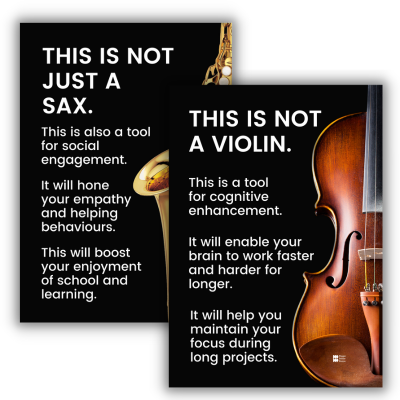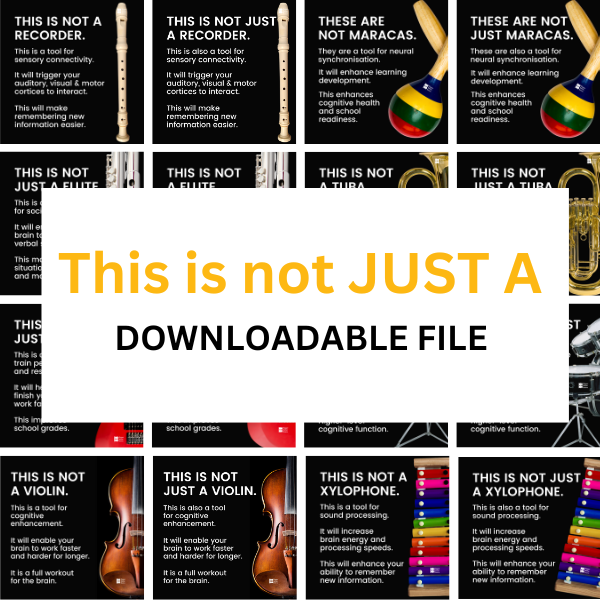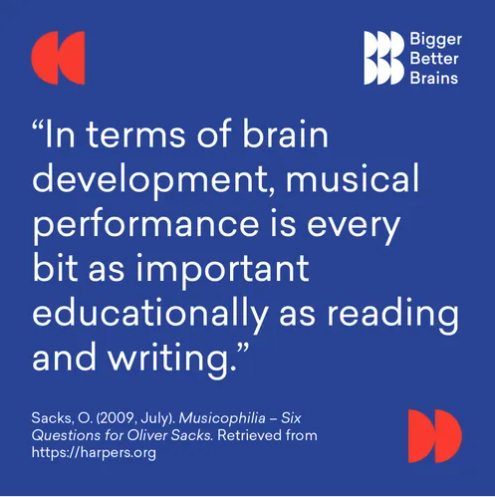"Musicophilia: Six Questions for Oliver Sacks" is an interview with neurologist Oliver Sacks, where he discusses his book Musicophilia and the fascinating ways music impacts the brain, including discussions on whether music learning is as important as reading and writing.
Hey music teacher!
Did you know that Bigger Better Brains creates advocacy tools to help you demonstrate the lasting value of music education?
Here are the key points:
Music's Uniqueness: Sacks explains that music has a unique effect on the brain, engaging more areas than language or math. He emphasizes how deeply music connects to memory, emotions, and movement.
Music and Neurology: He describes how music can serve as a therapeutic tool, especially for individuals with neurological disorders such as Parkinson’s or Alzheimer’s. In such cases, music can help patients regain motor function or evoke powerful memories.
Musical Hallucinations: Sacks touches on musical hallucinations, a condition where people hear music that isn't there. He explains that these can occur in people with hearing impairments or brain injuries.
Emotional Impact: He explores why music has such a strong emotional effect on humans, connecting it to our brain’s capacity for rhythm and the ways music can evoke powerful emotions, often without words.
Music and Autism: Sacks notes the special relationship between music and individuals with autism, explaining that music can provide a form of communication and comfort to those who have difficulty with verbal interaction.
Personal Experiences: Sacks reflects on his own experiences with music, including how it’s been a central part of his life since childhood and its lasting impact on his emotional well-being.
The interview and book showcases the profound connection between music and the brain, highlighting Sacks' lifelong passion for understanding the neuroscience behind music.





